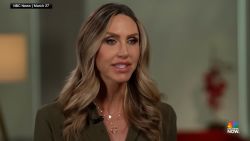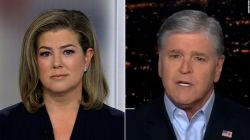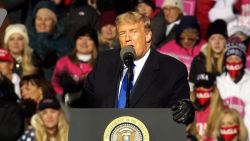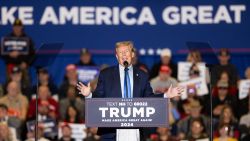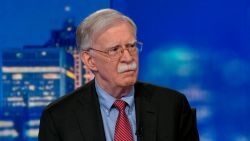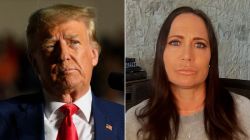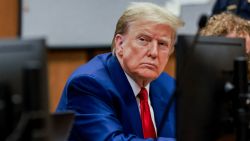President Donald Trump is now paying a direct, personal price for his pandemic denial – the possible shelving of the thing he cares about most, the raucous rallies that defined his political rise and are crucial to his reelection hopes.
Trump spent the weekend seething about the disappointing crowd for his comeback event in Oklahoma on Saturday night, according to CNN reporting. His hopes of a full-time return to the campaign trail then took another blow with news that eight staffers and two Secret Service agents at the event are now positive for the coronavirus.
The test results cast Trump’s risky decision to go ahead with an indoor rally that doctors fear turned into a super-spreader infectious event in an even worse light. They also show how the virus – now marching through southern and western states despite Trump’s insistence that the US has already “prevailed” in the fight – is having a disastrous impact on the “Great American Comeback” narrative at the heart of his reelection bid.
Far from easing the political damage caused by the virus, Trump keeps exacerbating it. On Monday, he gave new life to a controversy caused by his remark on Saturday that he told his staff to slow testing for the virus to avoid discovering new cases, which in itself reflected his negligence in responding to a pandemic that has now killed more than 120,000 Americans.
After his White House press secretary Kayleigh McEnany offered the dubious excuse that Trump was speaking in “jest,” the President dug his hole deeper during an interview with the Christian Broadcasting Network.
Trump, who described his remark as “semi-tongue in cheek,” continued to argue that the problem in the United States is not that the virus is so widespread, but that testing keeps discovering how deeply it has penetrated in the community.
“Instead of 25 million tests, let’s say we did 10 million tests, we’d look like we were doing much better because we’d have far fewer cases. You understand that. I wouldn’t do that, but I will say this: We do so much more than other countries it makes us in a way look bad but actually we’re doing the right thing,” Trump said.
The comments seem to set off yet another new political storm that will further complicate attempts by the President’s campaign team to rebound after Saturday’s embarrassment. The campaign team is now considering smaller venues for Trump events – a move that would surely bruise the commander in chief’s ego, or outdoor locations where supporters might feel more comfortable.
Limits on campaigning would be intolerable for any President seeking reelection. For Trump, such a crimping of his style would be even worse, given the centrality of his big rallies to his political id and the morale boosting role they fulfill for a president who is an outsider in Washington.
A strong base
There is no doubt that the President has a tight hold on Republican voters – the unwillingness of GOP senators to rebuke him over his latest racist comment– when he called the coronavirus that originated in China “the kung flu” – is proof of that.
And Fox News said that Trump’s return to the trail secured its biggest Saturday night television audience in its history, suggesting that while some Trump fans might have been concerned about the virus, their absence from Tulsa was not down to diminished enthusiasm.
Trump has always defied political gravity – and the effect of months of stay-at-home orders and lockdowns makes it even more difficult than usual for political analysts to get a solid assessment on how much of the country now views the President.
But the rally controversy points to more fundamental political challenges facing Trump as he trails former Democratic Vice President Joe Biden in the polls and the virus tightens its grip on nearly half the country.
View Trump and Biden head-to-head polling
Saturday night’s event was meant to send a signal that the worst of the danger from the pandemic has expired and that America is on the comeback trail. Instead, it suggested that even Trump’s supporters who elected not to show up in an indoor event that brought the risk of infection, may not yet believe the core message of their hero’s campaign.
With every chance that thousands more Americans die before Election Day, Trump must face the prospect that his denial and mismanagement of the pandemic that left the country ill prepared for a deadly public health crisis is becoming a millstone that his campaign may never be able to shake off.
Searing attacks
The President’s response to a miserable 48 hours was typical – an all-out attack. His targeting of Biden and the Democrats, demonstrating his ferocious tenacity in a way that also hinted at concern in his inner circle.
Trump fired off a series of searing claims on Twitter – that have no basis in fact – that mail-in voting being considered by many states will lead to massive fraud and foreign interference in November’s election.
The President’s team followed up with a new offensive against Biden’s health and mental faculties. They claimed that the former vice president’s decision to stick to convention and only sign up for the three official presidential debates in the fall – and not the extra encounters Trump is demanding – shows the former vice president has trepidation about taking on the President. The tactic was a return to the effort to define Biden as unfit to serve as President – that does not appear to be working, if battleground state polls are anything to go on.
Trump also returned to the safe place to which he often returns when he’s in political trouble – hardline immigration policy, signing an executive order that further restricts legal immigration.
On Tuesday, Trump will head to Arizona to tour a section of his border wall that was so fundamental to his appeal to conservative base supporters in his first presidential election campaign.
The President’s actions were all aggressive gambits that might appeal to his keenest supporters. Taken together with Saturday’s campaign rally that contained meandering diversions, lavish self-praise, casual racism and disinformation, it was difficult to see how they would appeal to wavering voters who do not belong to Trump’s base.
The Arizona trip – while it will provide fodder for Trump’s conservative media cheering section – will surely be overshadowed by the state’s increasingly intense battle with the virus. The Grand Canyon state was among 10 other mostly Trump-won states that saw their highest seven-day average of daily new coronavirus cases on June 21, according to data from Johns Hopkins University.
While the President is out of town, two of his top public health officials, Centers for Disease Control and Prevention Director Dr. Robert Redfield and the government’s top infectious disease expert Dr. Anthony Fauci, will testify before a House committee on the increasingly grave situation in many states.
Trump will attempt to put the embarrassing scenes of Saturday night behind him when he addresses a “Students for Trump” event in Arizona.
Attendees have been told to bring face masks to the event but will not be forced to wear them.
Democrats are already seeking to exploit Trump’s remark about slowing testing in Oklahoma, portraying it as emblematic of a mismanaged effort to tackle a virus that caused a shutdown of the economy.
“Two nights ago in his diatribe, he told them to stop testing because the numbers were going up … I mean, my God,” Biden told a fundraising event, according to a pool report on Monday.
CNN’s Kevin Liptak and Kaitlan Collins contributed to this report.











